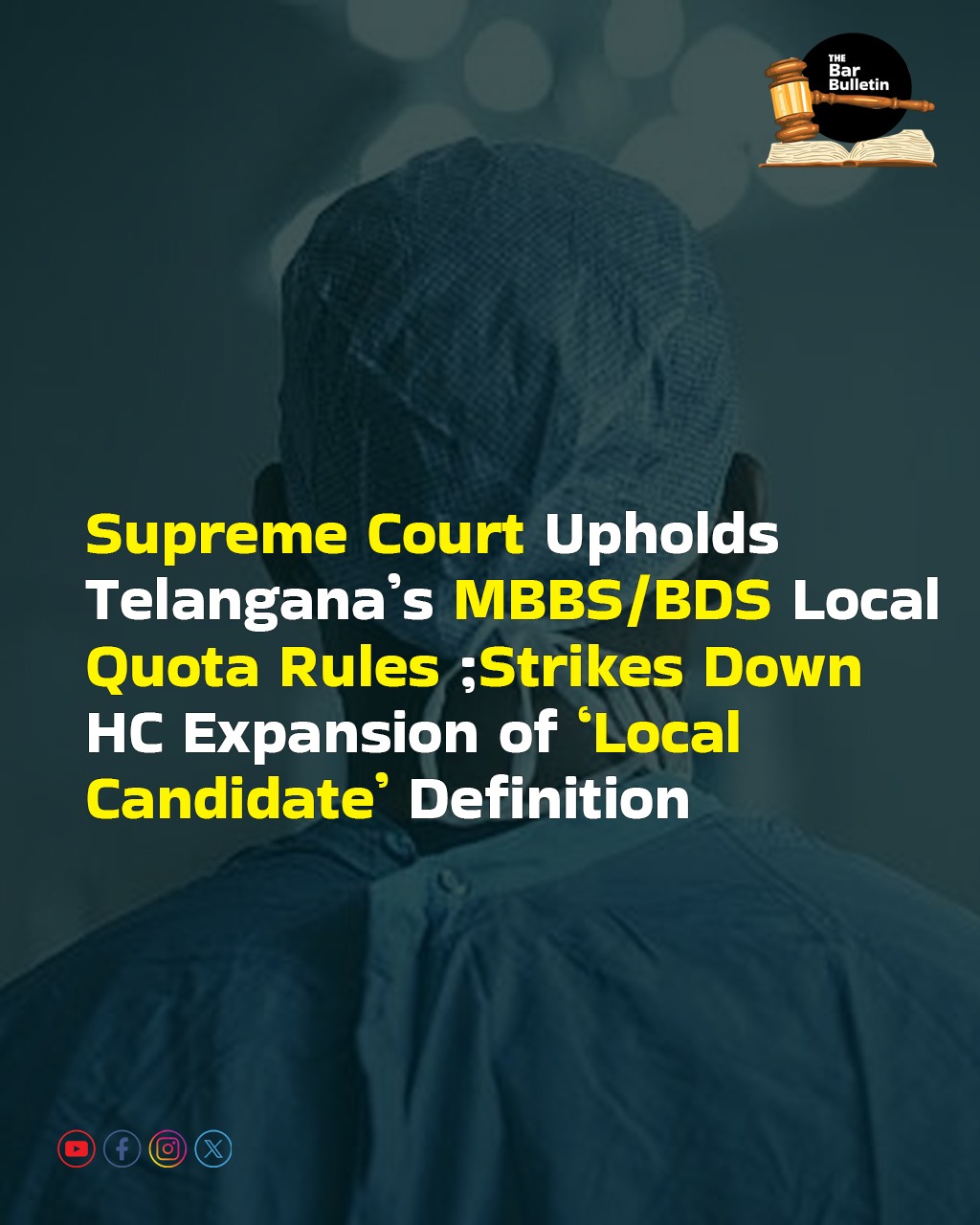The Supreme Court upheld the validity of Telangana’s medical admission rules and struck down the Telangana High Court’s attempt to broaden the definition of “local candidate” for MBBS and BDS courses.
A Bench comprising Justice K. Vinod Chandran, who authored the judgment, and Chief Justice B.R. Gavai held that the Telangana Medical & Dental Colleges Admission Rules, 2017, along with their 2024 amendment, were validly framed under the Presidential Order of 1974 issued pursuant to Article 371D of the Constitution. These rules reserve 85 percent of seats in the “Competent Authority Quota” for candidates who studied and resided in Telangana.
The Court ruled that the High Court, while exercising jurisdiction under Article 226, had no authority to expand the statutory definition of a local candidate to include all students possessing residence certificates. Such an expansion, the Bench observed, would frustrate the purpose of Article 371D, which was specifically designed to ensure that students who have been educated and integrated within Telangana society are given preferential opportunities in professional courses, thereby increasing the likelihood that they would serve the State after qualifying as doctors.
Rejecting the High Court’s view that the rule was arbitrary, the Supreme Court relied on a consistent line of precedents, including D.P. Joshi v. State of Madhya Bharat, (1955) 1 SCC 58, Pradeep Jain v. Union of India, (1984) 3 SCC 654, and Anand Madaan v. State of Haryana, (1995) 2 SCC 135, to reaffirm that residence and study requirements for admission are constitutionally permissible classifications and do not violate the guarantee of equality under Article 14. The Bench stressed that individual hardships cannot be a basis to strike down rules that are otherwise constitutionally valid, and that the formulation of such policy is a matter for the legislature and executive, not the judiciary.
At the same time, the Court acknowledged the concerns of students whose education outside Telangana was compelled by the transferable nature of their parents’ employment. To address this, it accepted the State Government’s proposed amendment to Rule 3, which extends eligibility to children of Telangana Government employees serving outside the State, members of the All India Services borne on the Telangana cadre, Defence and CAPF personnel, and employees of Telangana PSUs who were posted outside the State during the relevant period of their child’s schooling.
Importantly, the Supreme Court also clarified that admissions already made under interim orders of the High Court, which had applied the expanded definition, will not be disturbed.
Concluding the matter, the Court allowed the appeals filed by the State of Telangana and Osmania University, set aside the impugned judgments of the Telangana High Court, and dismissed the writ petitions filed by the students.



